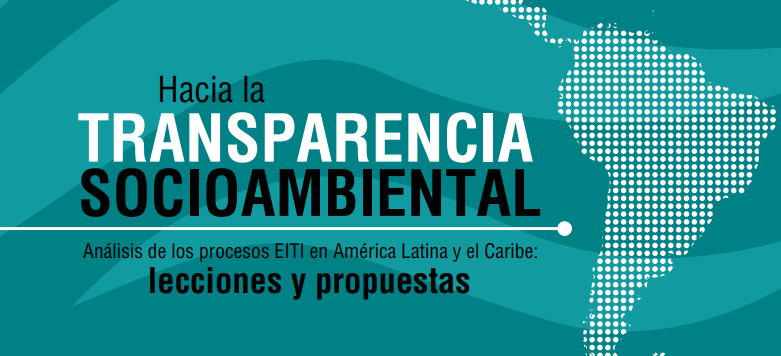The demand for socio-environmental information regarding extractive activities, in order to assess their real costs, inform the debate and strengthen public participation in decision-making on policies and mining, oil and gas projects is felt increasingly strong in Latin America. At the same time, several countries in the region are involved, in different stages and with varying degrees of participation and legitimacy, in the Extractive Industries Transparency Initiative (EITI) as an opportunity to improve access to information and governance in these sectors. In this context, national needs are necessarily permeating the EITI processes in the region, where there is a call to include specific commitments to socio-environmental information. However, in some instances, the inclusion of these commitments has been hampered by the fact that the international EITI standard does not specifically address this issue, although it recognizes the need for the initiative to adapt to national contexts.
Faced with the above situation, the Latin American Network on Extractive Industries (RLIE in Spanish) undertook the completion of this study to deepen the knowledge of the national EITI processes in the region and the role that demands for socio-environmental information have played in such processes. From this further understanding, we present a number of recommendations for strengthening the EITI agenda and make it more relevant not only to the region, but also for other countries in the world, through the inclusion of a socio-environmental agenda. To do this, we analyzed the processes of Guatemala, Honduras, Colombia, Peru, Trinidad and Tobago, as well as the Philippines and Mongolia as examples of good practices.
It is necessary to mention that the completion and publication of this study was supported by Publish What You Pay (PWYP) and the Natural Resource Governance Institute (NRGI), who have played a key role in this process. Therefore, we take this brief space to extend to them our gratitude for all the work carried out.











